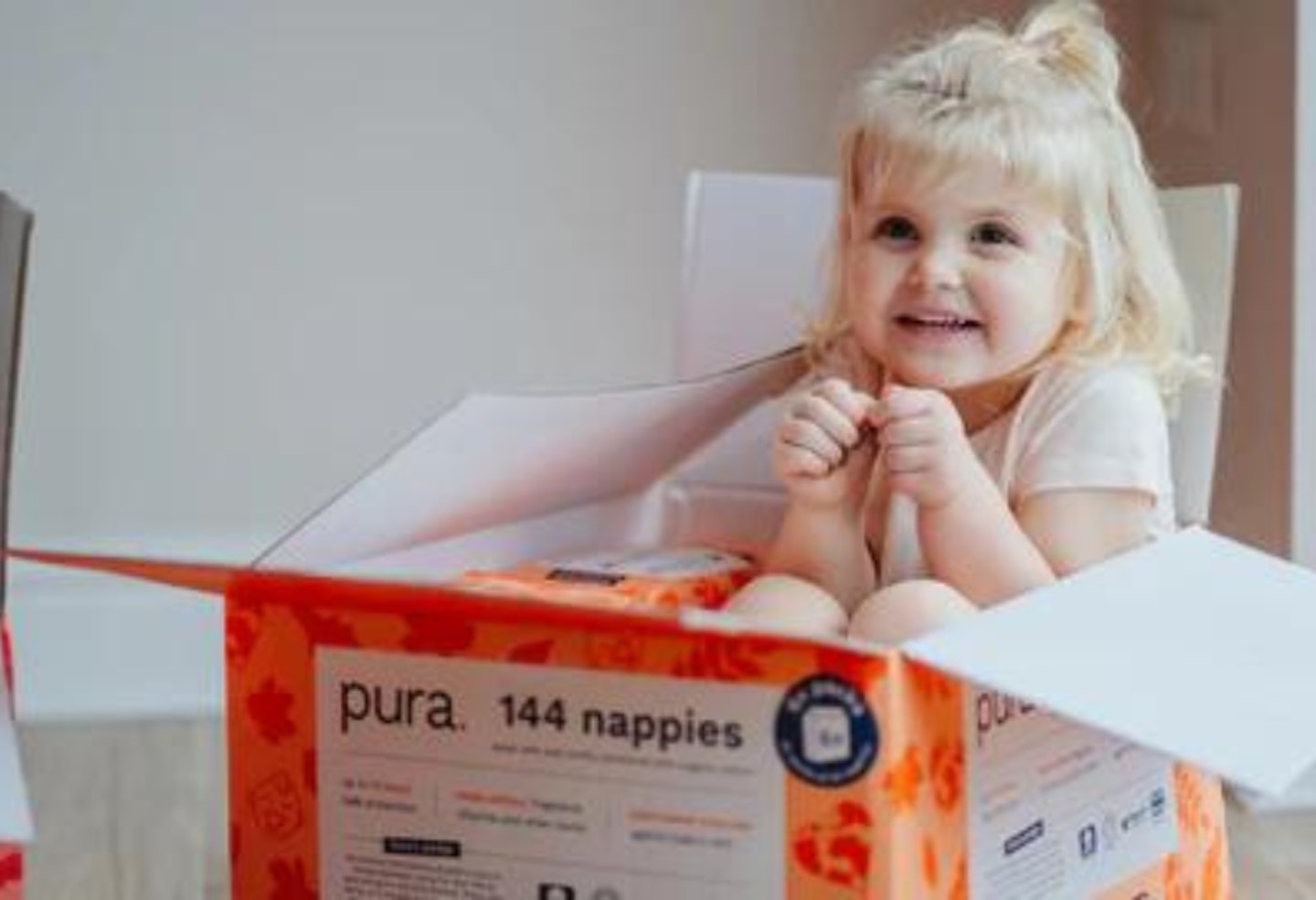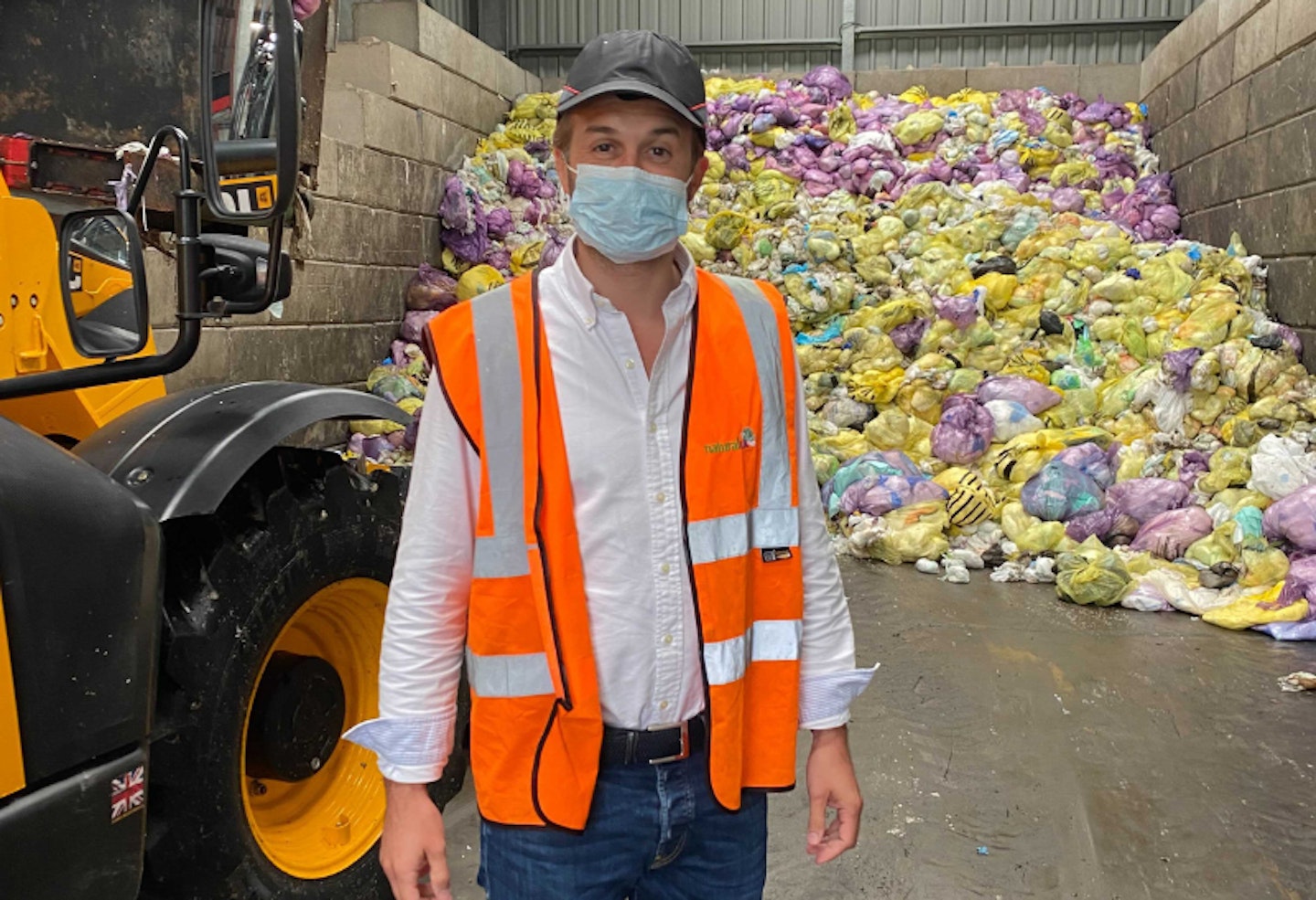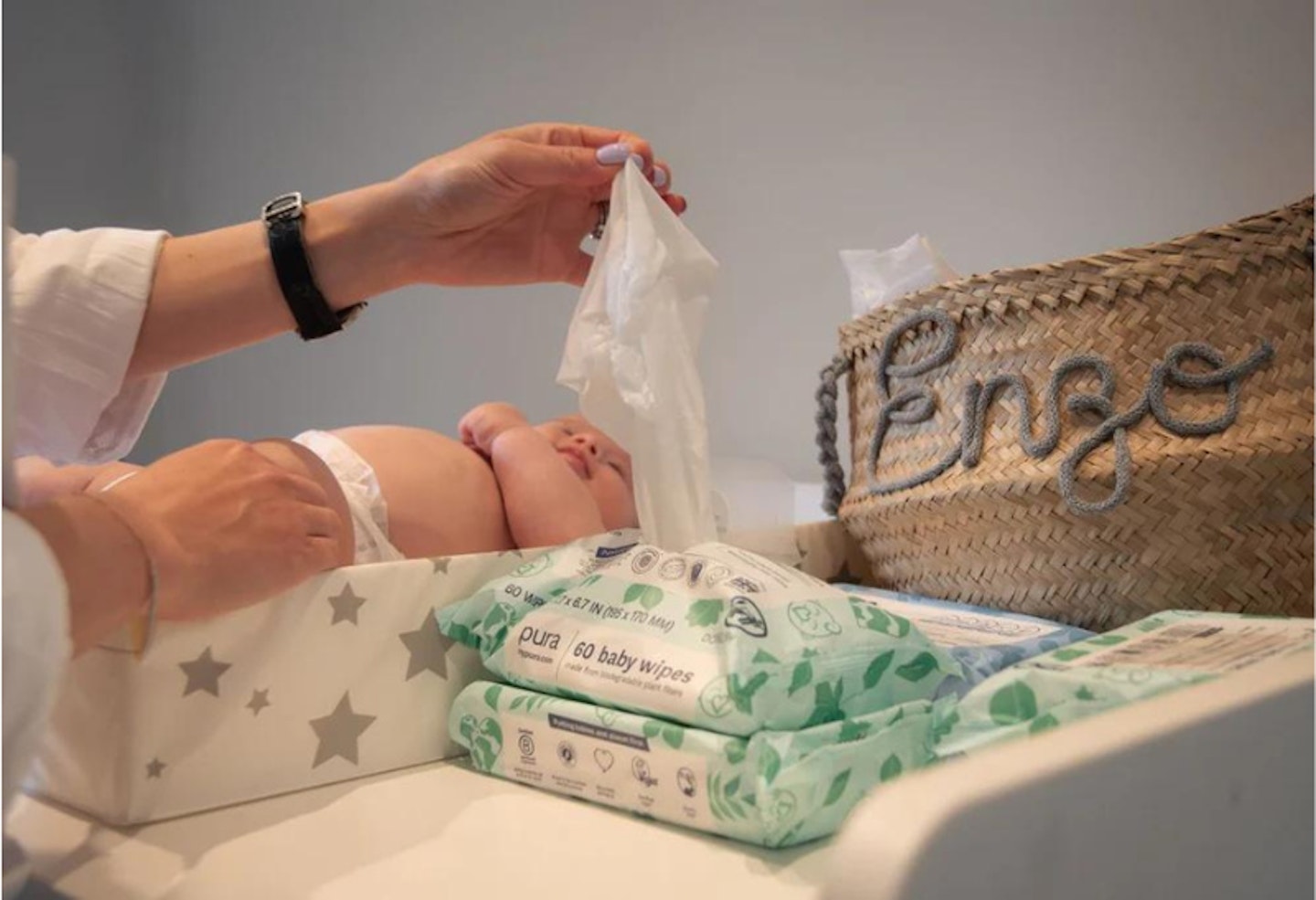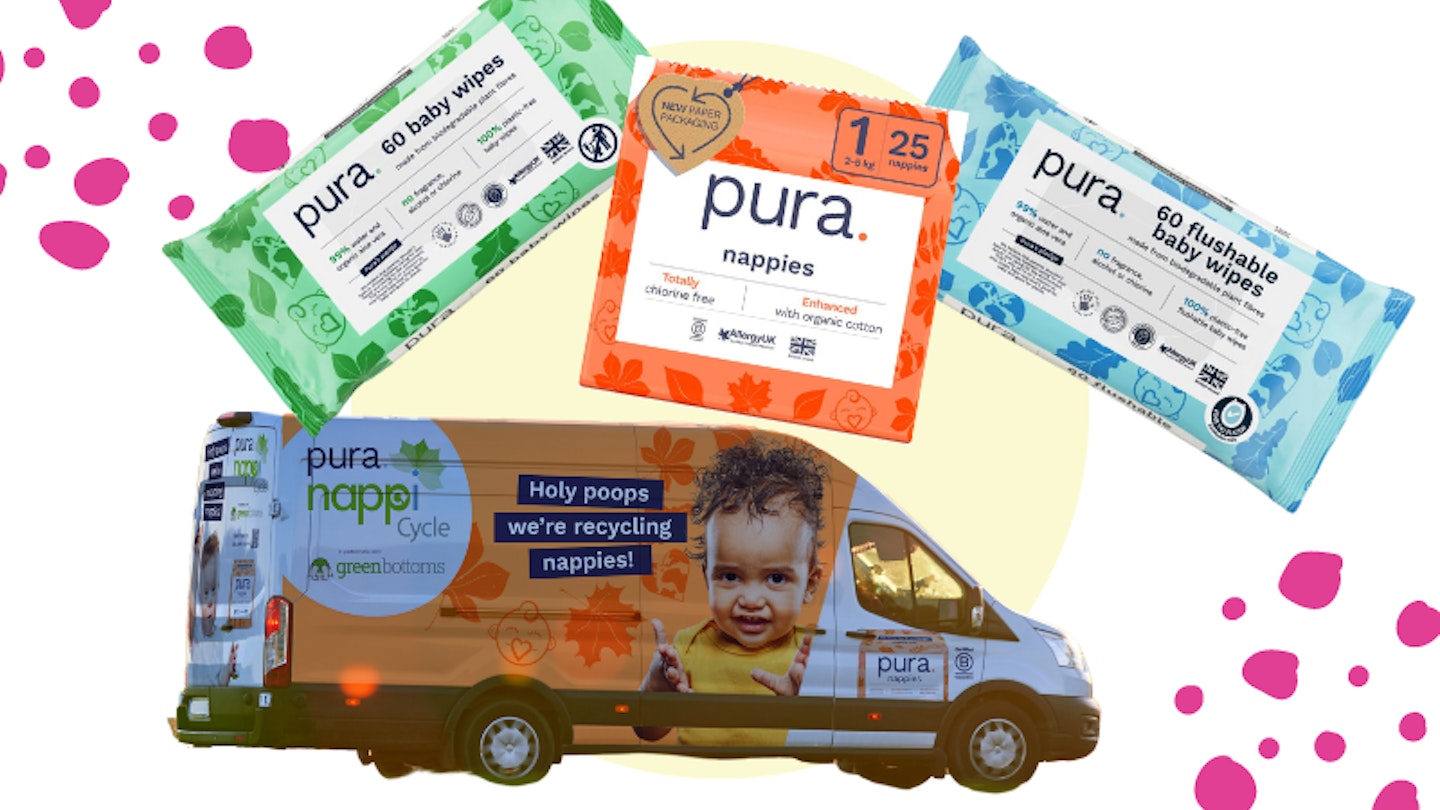Considering sustainability and managing our carbon footprint is important in all areas of our lives, however, when it comes to parenting and babies, it can feel like a massive challenge to be raise an eco-friendly baby. But it doesn't have to be and there's lots you can do to help the environment without making sacrifices with how you look after your little one. Guy Fennell, founder of Pura, believes sustainability and parenting are very compatible and below he gives us his five top tips to help you reduce your child's carbon footprint. Guy believes this is so important, saying, "this is not our world. It’s our children’s. Yet we’re damaging it with the very essentials we’re using to look after them.“
Guy, a dad of two under 5 years old, understands the challenge of combining parenting with sustainability. He says, "I understand that having a new baby isn't always easy. When you’re sleep deprived and knee-deep in nappy changes, living an eco-friendly lifestyle can seem daunting (if not impossible)." However, he adds, "small changes really do add up to make a big difference." Guy set up Pura for that very reason, to ensure that being eco-friendly was easier for parents and he explains, "we wanted to give all parents the option of sustainably-made wipes and nappies that were also affordable and great for babies’ skin."

Top 5 tips for an eco-friendly baby
Use hand me downs
Guy believes that using hand me downs, including toys and sustainable clothes, is a great way to help the planet. He understands the temptation to buy everything new, saying, "it’s exciting having a new baby and tempting to buy lots of cute, new clothes but we also used pre-loved clothing and toys from friends and family." He continues, "babies can outgrow around seven clothing sizes in just two years – talk about fast fashion! With our youngest Enzo, we’ve been able to reuse Ezra’s baby clothing but when Ez was a baby, we were starting from scratch." And it doesn't have to end there, keep passing on the clothes, if you can, or donate them to a clothing bank. Obviously, some clothes will get tatty, or ripped, or stained, but there are always those items which are only worn a few times and then your little one out grows them. Guy says, "when Enzo has outgrown them, we’ll pass these on to others. This way we can do our bit to help ensure that clothes and toys that have only been used a few times don’t end up in landfill."
Use sustainable wipes
Baby wipes are an essential part of parenting, they can be used for most messes, for sticky fingers, dirty faces, and nappy changes and the thought of not having them might bring horror to most parents. But at the same time, baby wipes can be extremely damaging to the environment, clogging pipes and ending up in landfill where they take years and years to break down. However, Guy recommends using sustainable baby wipes such as those developed by Pura. In fact, Guy was instrumental in achieving a ban on plastic in baby wipes explaining that "when Pura launched, 90% of wipes in the UK contained hidden plastic. Through endless campaigning we worked to wipe out plastic wipes and were delighted when the Government finally announced a ban." However, there is still more you can do. Guy says, "plastic aside, there are other things you can look out for if you want choose a more sustainable wipe brand. Opt for wipes made in the EU or UK rather than in the Far East which will have travelled less, meaning they have a lower footprint. I’d also recommend looking for the B Corp logo. Selecting B Corp products means you're supporting fair wages, ethical supply chains, and environmental stewardship." Choosing biodegradable wipes is a good way to help the environment without any inconvenience to you as a parent.
Avoid food waste
Feeding little ones is always tricky, especially when you have a fussy eater. As a result, it can lead to food waste and that is not good for sustainability. Guy suggests, "it takes a bit of effort but we’ve found it very useful to plan our weekly food menus and only buy what we need in a bid to reduce our waste. We also use leftovers for work packed lunches, which also means we’re not buying single use packaged sandwiches."
Considering baby weaning specifically, which as parents we know can be messy and feel very wasteful when baby only has one mouthful (and perhaps they even spit that out!) Guy advises, "when weaning our boys, we batch cooked and froze pureed veggies into small portions. You can use ice cube trays to do this. Another tip is to use frozen veg which has a longer shelf life." Plus, there are so many reusable food storage options on the market to choose from, including reusable pouches instead of single use ones.
Recycle
Guy admits, "babies need a lot of stuff. And most of that stuff comes wrapped in mountains of packaging. When you’re sleep deprived and busy looking after your baby, it’s tempting to simply toss all your packaging in one bin." We've all been there, but recycling will really help the planet and Guy says, "a lot of packaging can be recycled at home." He explains that Pura now package their nappies in paper for this reason, "like most nappy brands on the market, our nappies used to be wrapped in plastic film packaging that was only recycled at supermarkets. Our new paper packaging, launched in spring this year, comes from a renewable resource – sustainably managed forests – and can be simply be thrown in with your home paper recycling, minimal effort required!" Other companies such as Ella's Kitchen offer recycling options, but they can't necessarily be recycled at home and might need to be put out by the kerb for collection or taken to a collection point.
Nappy recycling
Yes, that is right, nappies can recycled. Guy says, "annually, 3 billion nappies are thrown away in the UK, going to landfill and incineration" but again Pure are leading the way with a nappy recycling scheme, the Pura NappiCycle partnership. That said, Guy explains, "at the moment, this is only happening in Wales where it is a service provided by the local authorities that is financially supported by the Welsh Government." However, "to raise Government and public awareness of the opportunity to recycle nappies outside of Wales, Pura has launched, and is funding, a year-long nappy recycling trial in Bristol this summer." Guy explains, "the materials from a recycled nappy are used in road surfaces and noticeboards to name a few applications." He has high hopes for the future and says, "we’d love to see nappy recycling offered as a local authority provided service to every UK parent in the same way as it is in Wales."

Are biodegradable nappies really biodegradable?
No, not at the moment. There are currently no nappies which completely biodegrade. Biodegradable means that a material will break down into natural matter over time and this is currently not possible with nappies because all disposable nappies contain some amount of plastic. Therefore, biodegradable nappies will not completely break down, only parts of them.
Are Pura nappies biodegradable?
No, they are not biodegradable and they don't claim to be. They are, however, more eco-friendly than other brands. Pura’s Sustainability Director Matt Moreland says, "Pura have replaced some of the oil-based plastic with plant-based materials, they are manufactured in a carbon neutral plant by a carbon neutral company. They are also accredited by EU Ecolabel and Nordic Swan Ecolabel – independently verifying that they have a smaller impact."
Can I put biodegradable nappies in compost?
Matt Moreland says that "some brands are trying to create compostable nappies, these are nappies that can biodegrade to a larger extent (but not completely) but this biodegradation only happens in very specific human created and controlled conditions - not in nature." He adds, "this is more dangerous for the environment as many consumers understand this to mean they can drop the nappy into nature, and it will break down – which is simply not the case."
How does Pura NappiCycle work?
Rob Poyer, NappiCycle founder, says, “NappiCycle pioneered a cost effective and environmentally friendly way to recycle nappies in 2009. Rather than being discarded as waste, the recovered materials are repurposed for useful items ranging from materials for paving more durable roads to supermarket sales materials." Launched in 2021, Pura NappiCycle is an exclusive partnership between NappiCycle and Pura. Pura NappiCycle is aiming to recycle 1 million used nappies and other absorbent hygiene waste in a mission to stop them going into landfill and even better, it's free for parents. After a successful trial in Wales, from the 31st July Nappicycle has been trialling the scheme in Bristol. However, Guy says, "we want to bring nappy recycling to households throughout the entire UK."
In their recent six-month trial 6.3 tonnes of waste was saved which is the equivalent of 31,500 nappies. Following the current trial, the findings will be used to provide information to DEFRA (Department for Environment, Food and Rural Affairs) and local authorities throughout the UK about the feasibility and benefits of nappy recycling, including cost and carbon impact.

How can I make my baby sustainable?
As Guy advises there are lots of things you can do to help the planet while raising your little one such as reducing food waste, using preloved clothes and toys, as well as choosing sustainable toys, recycling, using sustainable wipes and nappy recycling, if it is available to you. Also check a brand's eco credentials.
You can also try using reusable nappies, which while these might feel like a faff at the start are much more user friendly than they used to be, there are no longer big nappy pins and sloppy wet nappy buckets. Reusable wipes are also available and while these are trickier to use when out and about, they are handy while at home. Plus they double as great cleaning cloths when you no longer need baby wipes. Consider other items you use around the house to ensure you are making eco-friendly decisions, such as, eco-friendly cleaning products. There are lots ofeco-friendly baby brands to consider which will make sustainability in your household simpler. Also, take time to think about eco-friendly baby products which will help you reduce your little one's carbon footprint and help to look after the world they are growing up in.
About the expert
Guy Fennell is a the founder of Pura. He has twenty years of experience working with FMCG companies, but decided to take his passion for sustainability into the business world. His ambition for Pura is to provide a change in a sector that provides essential products to young families, offering parents sustainable alternatives.
Laura Healy is a Commercial Content Writer for Mother&Baby. She is a mum-of-two girls and loves writing about all things parenting, she is particularly interested in the toddler years and eco-friendly baby products, as well as children’s literature. She has a PhD in Creative Writing and has published short stories in the UK and Ireland, as well as previously writing freelance for her local paper.
